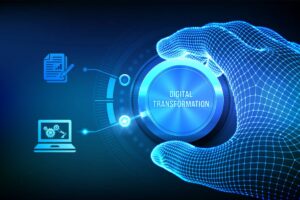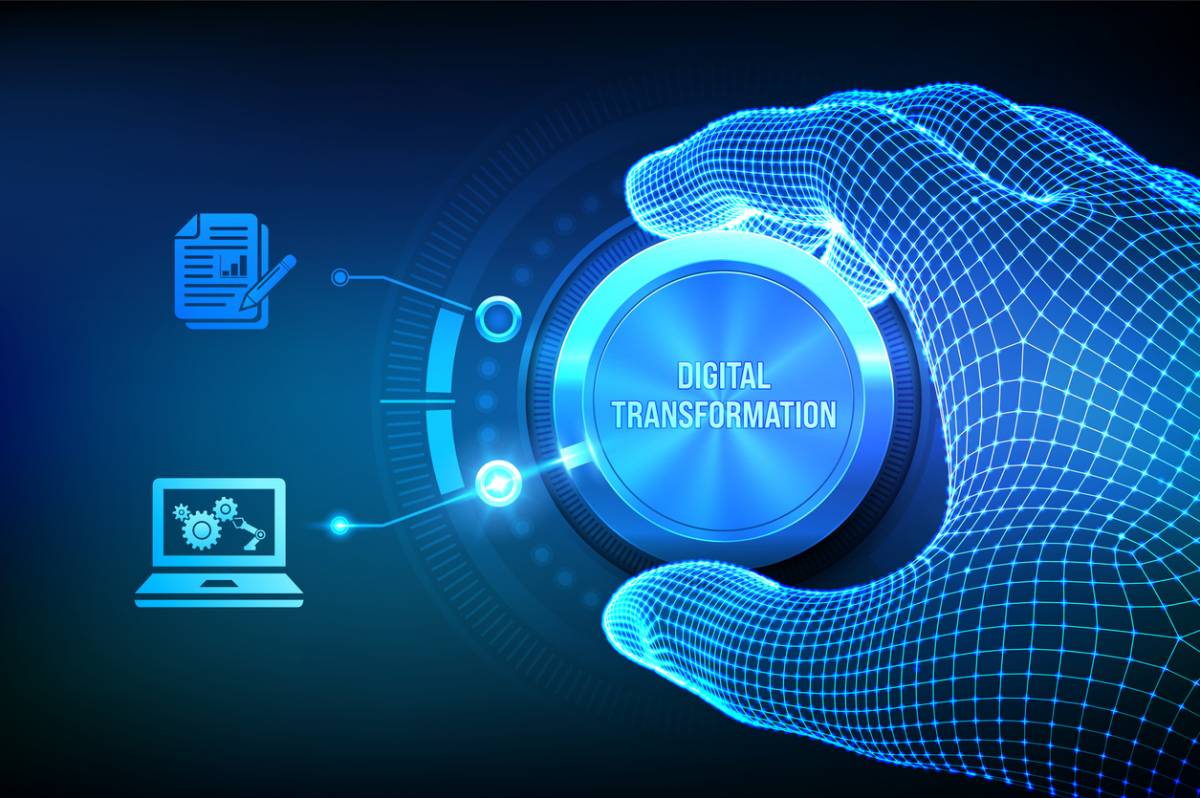With the rapid advancement of technology and science, and increasing competition in the market organizations and enterprises face a lot of pressure and responsibilities. They must rely on digital transformation in order to increase efficiency, improve the operation, rise customer experience and create new business models. Digital transformation is the process of changing the model of business and organization structure along with business processes, products and services provided by companies by together digital technology in order to adapt to the demands of the modern age. As part of the digital transformation, these crucial technologies play an important function.

1. Cloud computing
Cloud computing can be described as a concept that offers computing services and resources to customers via the Internet. It is the basis in the digital transformation. Cloud computing is able to serve services with high-availability along with scalability, flexibility and adaptability that allow enterprises to rapidly react to market shifts in order to increase efficiency and creativity. Enterprises can store their data as well as applications on the cloud, and then access them at any time and from anywhere, which allows the sharing of data and collaborative work. Additionally cloud computing also can bring different artificial intelligence, machine-learning and big data analytics services that benefit companies gain insight into market trends as well as customer behavior, and benefit them improve the quality of their products and services.
2. Big Data Analysis
The digital age has produced an abundance of data. Big data analysis technology could benefit companies gain valuable knowledge and information from this data, enhance procedures and rise the efficiency of decision-making. The Big Data Analysis technology comprises the data mining process, data warehouses, information visualization and security, and other technologies that can benefit businesses complete complete control and efficient utilization of data. Through analysis of big data companies are able to procure insight into market trends and customer behaviour as well as business process bottlenecks and many other issues, offering crucial decision-making assistance for digital transformation.
3. Internet of Things
The Internet of Things refers to connecting the physical world to the digital world via various sensors RFID tags embedded systems, and various other gadgets to fulfil connectivity and intelligent interactivity between various objects. It is believed that the Internet of Things can benefit companies to automatize and optimize production processes, boost efficiency and quality as well as deliver clients with better customized items and products. For instance, applications such as smart homes and smart manufacturing, as well as smart medical care and more can all be realized with the benefit of Internet of Things technology.
4. Mobile Internet
With the increasing popularity of smartphones and the growth of mobile Internet mobile Internet technology is now an integral component of the digital transformation. Mobile Internet technology is able to benefit companies complete real-time interactions and remote interaction with customers, increase customer service and effectiveness. For instance, companies are able to offer additional customers with customized solutions and services through mobile apps, and further expand business opportunities by together mobile payments as well as mobile marketing ways.
5. Artificial Intelligence and Machine Learning
Machine learning and artificial intelligence technologies could benefit businesses develop intelligent applications, such as predictions and analysis, automatic execution and decision-making, rise efficiency and reduce cost. They can learn automatically and enhance the operational processes and business strategies of businesses by analyzing and comparing massive amounts of data in order to find patterns and patterns. For instance, machine learning can benefit businesses automatically recognize the patterns of customer behavior and requirements, providing customers with more precise goods and services. Artificial intelligence could also benefit companies automatize a huge variety of repetitive chores, boost production efficiency and improve the quality of service.
6. Blockchain Technology
Blockchain technology can be described as a distributed, decentralized database technology that is used to keep track of digital transactions such as digital identity authentication and other details. Blockchain technology could benefit businesses obtain secure and transparent digital transactions, and rise privacy and security of data security capabilities. For instance in the field of finance blockchain technology could benefit accomplish quick and inexpensive transactions across borders; and in logistics management and supply chain, the use of blockchain technologies could benefit fulfil the accuracy of commodity data and boost the quality of goods and service quality.
7. Integration of 5G and the Internet of Things
The advent of 5G technology in the network will also boost the development and use of IoT technology. 5G networks are distinguished by the attributes of speedy, high-speed as well as low latency and huge capacity, which will satisfy the needs of IoT for connecting large numbers of devices and processing data in real-time. The integration of 5G with IoT could benefit companies attain greater efficiency and a more complete IoT applications that rise productivity and the quality of services. For instance in the area in smart manufacturing combination between 5G and IoT will allow for intelligent connection and monitoring in real-time of factory equipment. This can boost the efficiency of production in factories and efficiency of equipment.
8. Virtual Reality and Augmented Reality
Virtual technology and augmented reality can benefit businesses complete an enhanced as well as interactive experience. They also rise satisfaction of customers and quality of service. These technologies create realistic scenes and images within the virtual world, which allows users to interact and perceive with their devices, such as display heads mounted on their heads. For instance within the residential real estate sector VR technology can benefit clients comprehend the structure, decor design, and the surrounding area of a house by allowing the virtual view of a house; and in tourism the technology of augmented reality can benefit users get information in real-time about the attractions they visit using the camera of smartphones or interact through virtual objects.
9. Software-defined security
Software-defined security refers to a technique which protects information and network security by together software-defined methods. Software-defined security is a method to benefit companies fulfil secure control and management of information and networks, as well as increase the security of their networks and boost reliability. This technology is able to obtain tasks like safe isolation of access and secure communications between networks and information using software-defined protocols, thereby definitely safeguarding the information and business systems of companies from leaks and attacks.
10. Low-code development platform
The low-code platform for development is tool that allows companies to develop applications in a short time. It allows developers to create and manage apps using an interface that is visual and components-based development. A low-code development platform could benefit businesses boost development efficiency and cut the cost of development, while assisting companies to quickly respond to changes in the market and the demands of their customers. This platform will benefit non-well-qualified developers to quickly create applications. It also offers flexibility in customization and expansion to meet the constantly changing needs of businesses.
For you to complete software docking without codes it is possible to choose Shuhuantong to lower expenses as well as rise effectiveness for your business!
Shuhuantong Data Connector iPaaS is an all-in-one enterprise-grade application integration platform that is fully functional secure, reliable and adaptable to numerous scenarios. Built upon the cloud’s native platform with pre-defined connectors as well as visual process orchestration and API governance features, it can connect various businesses, processes applications, data APIs, devices and devices inside and outside of the enterprise. It creates business connectivity as well as data flow and integration of resources across various systems, and effectively implements data exchange between downstream and upstream, within and external network applications of the company, thereby automating processes in the enterprise and assisting enterprises in implementing rapid innovation, digital transformation and upgrade.
Presently, Shuhuantong has connected and connected over 1,000 applications systems that include DingTalk, Kingdee Cloud, Weige Table, Douyin, Enterprise WeChat, CRM, Juliang Qianchuan, and UFIDA which has more than 20,000 commands and is constantly updating every week. It will quickly enhance the functionality of your current applications and connect multiple systems in a series.
